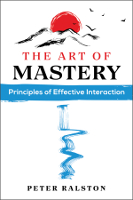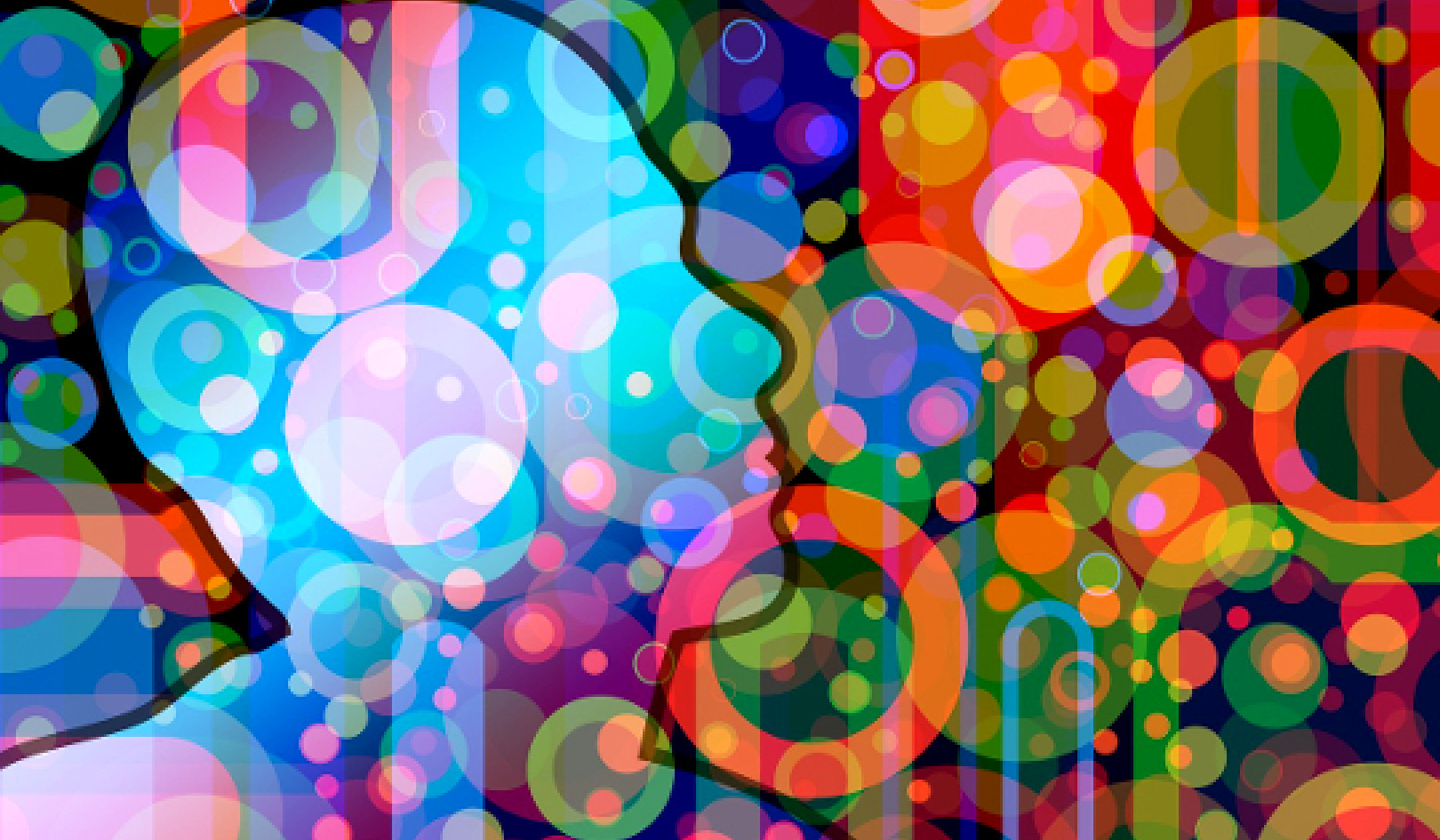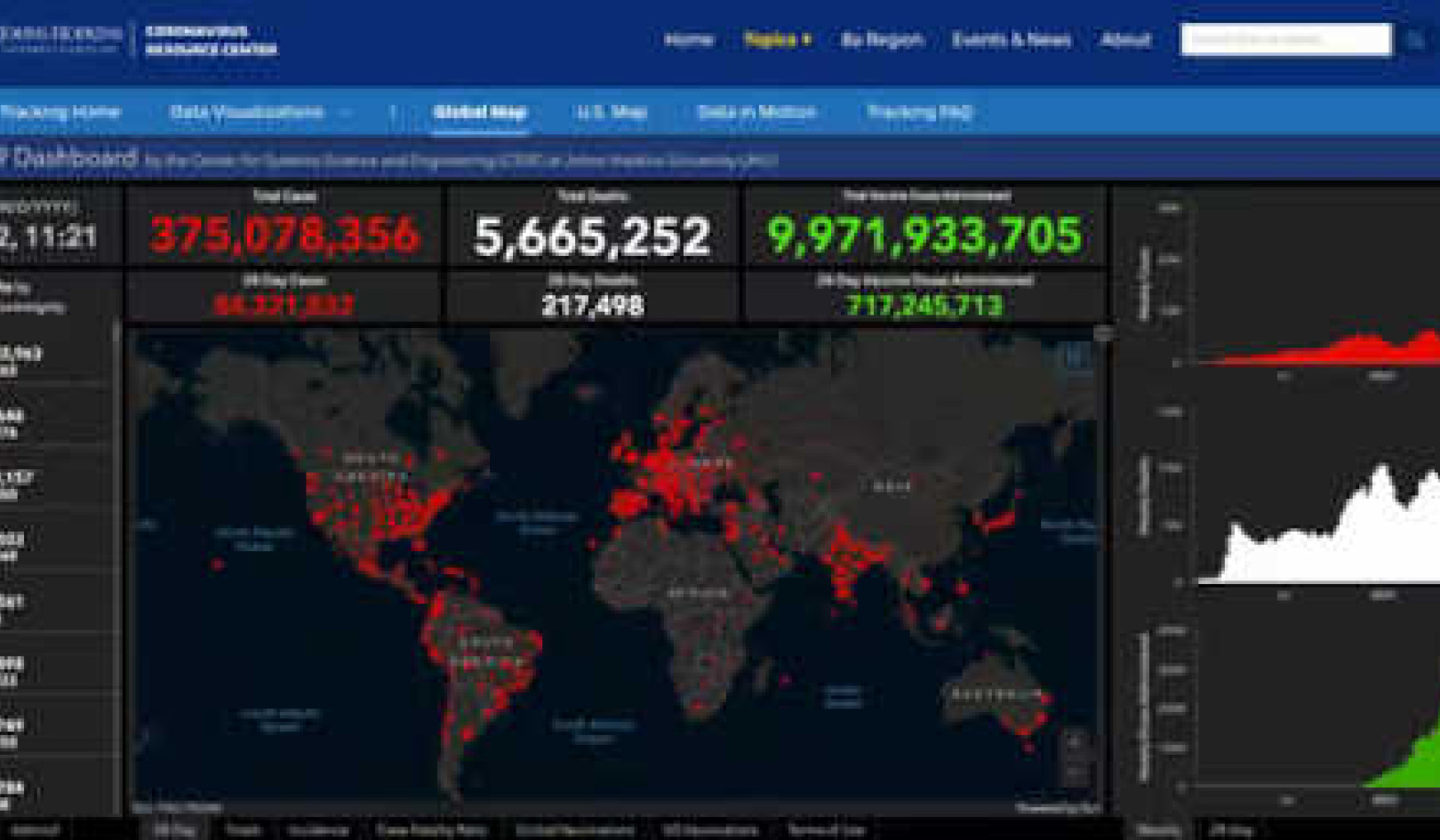 Image by Victoria_Regen
Image by Victoria_Regen
The secret to mastery is to know how to take appropriate action in relation to what’s occurring to produce desired results. Even though we try to do this all the time, it doesn’t always work out. That’s because there’s a catch. What we don’t notice is that what we experience doesn’t match what’s occurring, or what’s there, and that our perceptive-awareness doesn’t have all the elements necessary to act appropriately. This can change.
If people knew how hard I had to work to gain my mastery, it would not seem so wonderful at all. --Michelangelo
The pursuit of mastery is not an easy road. But if you don’t think it’s possible for you personally, you’re not likely to pursue it. You might think it takes too much work or you don’t have the time or energy to put in.
Besides, why go to all the trouble? What does it get you? Since what it gets you is really unknown, you may not even have the motivation to undertake such a task.
Yet even if you leap past such obvious hurdles and commit to pursuing mastery, it still does take a lot of work. The truth is, however, that other humans have become masters, and so the only requisite is to be human—if one of us can do it, then it’s possible for all of us. So, be clear: the decision isn’t if you can, but if you’re willing.
Mastery: What Does It Take?
Latching on to and putting into action just a few of the principles expressed in this book does make a difference. But real mastery requires more.
Mastery may take commitment and work, but such a pursuit is life-changing even before any attainment. It provides a new and powerful experience rarely achieved.
Committing to mastery transforms life into a deep adventure, increases your self-esteem, and not only gives you a reason to get out of bed in the morning but also provides you with a sense of being an exceptional person aiming for heights rarely attained. Simply, the pursuit of mastery takes you into another world, one of wonder and discovery.
The difference between a student and a master is, the master has failed more times than the student has tried. –Mac Duke
Changing Your Mind
A significant part of your experience you call your mind—that inner activity where you think and feel, imagine and calculate, remember and plan. It is also where you believe and assume, have been programmed and educated, developed characteristics and patterns of behavior, and formed your self-concept and self-esteem.
Mind is what dictates actions and reactions, states and moods. It calculates possibilities and creates strategies. It generates doubts and convictions. There is no part of your experience that isn’t at least influenced by your mind. Do you think this place, where you experience so much, might have something to do with your skills and abilities? Absolutely!
Get In The Driver’s Seat
It is essential that you put yourself in the driver’s seat of your pursuit and efforts. No one else can do it for you—only you can. Therefore, mastery demands responsibility. It is something that must take place in your own mind and body.
Obviously, it isn’t going to happen if you don’t do it, and you can’t do it unless you genuinely experience what it takes to do so. One of the central demands for mastery is to be able to change your mind.
To attain mastery, you’re required to change your thinking, perceptive-experience, and actions. All these activities occur as functions of your mind. Clearly, mental activities are of the mind, but even a physical action doesn’t occur unless it is generated by your brain.
If you can’t change what occurs in your mind, and thus your experience, you can’t become masterful. One of the first changes you need is an openness beyond how you presently think of and relate to the matter of mastery.
Mastery Is Not A Solo Affair
Mastery, or skill of any kind, is about relationship. It is determined by how you relate with another, an object, or some activity. Sometimes, without thinking, you might view mastery as a subjective or solo affair, since it is clear that you are the one who must create it. At first blush it could appear how you relate to or experience others or objects is irrelevant. But this is not a view you can afford.
When we think about it, we see skill can only occur in relationship. The way we relate to another, or to movement, a ball, an instrument, or to whatever—that is the only place where mastery can show up. Although we are responsible for creating our relating, it is how we experience and interact with the not-self that determines our level of skill.
We have all heard the phrase “mind over matter.” Although, when push comes to shove, most of us don’t seem to really believe it, we must admit that if our experience determines our level of skill then being able to change our mind is crucial to our pursuit. We’ll see that understanding how the mind works—so we can learn how to control and change it—is essential for mastery.
One of the reasons we need to be able to change our minds and our experience is that it is not only possible, but likely, that what’s occurring—what’s really there—is different from our experience of it. This might be a hard thing for us to grasp, because we assume our perceptions and interpretations reflect exactly what’s there. But this just isn’t so.
Our experience has many subjective influences that bend and twist it in ways both subtle and gross that interfere with accurately reflecting what’s occurring. Given this condition, work must be done to change our perceptive-experience to more precisely reflect whatever we’re interacting with—as it is. This provides us with powers and abilities we wouldn’t have otherwise.
Learning to Control Your Mind
Beyond changing the mind, we must also learn to control it. I can’t tell you how many times I’ve said to my apprentices “control your mind.” Without a certain mastery of mind, mastering anything else isn’t going to happen.
To be clear, I am not inviting you to make this into an ideal of perfection. We are talking about mastering a field, not all of reality or even all of mind. Many masters who are incredible at controlling their minds in their fields may not control it in their personal lives or in other endeavors. But in mastering your endeavor, mind control is essential.
One of the core skills of mind control is to be able to let go. We all have habits and beliefs, ways of doing things, and overlooked assumptions that get in the way of progressing beyond our current level of skill. We have to be able to let these go. Once we can get our experience to be accurate, drop detrimental habits and beliefs, and recognize and eliminate ineffective assumptions, we are empowered to relate far more skillfully.
Truly creative people in all fields can temporarily suspend their ego and simply experience what they are seeing, without the need to assert a judgment. They are more than ready to find their most cherished opinions contradicted by reality.--Robert Greene
Increasing Our Awareness and Sensitivity
Furthermore, we must increase our awareness and sensitivity because we need access to more information than a sluggish or cloudy awareness can provide. Toward that end, finding a way to make whatever we are attempting more effortlessly achieved forces us to search in places we wouldn’t otherwise as well as to discover finer distinctions and overlooked principles that make such effortlessness possible—thus heightening our awareness and moving us closer to mastery.
This deepening awareness partners with a growing body of experiential knowledge that provides a tremendous amount of information about each moment we are
You currently experience some level of skill in your field. You may experience a degree of competence, or you may experience being inept or challenged. Whatever you experience now is the starting point. The trick is to change this very experience.
In the old days, I would allow students into my “boxing” class only twice a year. When the new people came in I would tell them two things. First, “90 percent of boxing is mind—the physical component is relatively simple, and although improvement needs to constantly continue, everything else occurs through the use of your mind.”
I would also tell them, “Whatever you experience now has to change, because you don’t experience yourself as a master boxer.” These statements indicate an essential principle for mastery: your mind, experience, and yourself must change. This holds true no matter the field.
A man cannot understand the art he is studying if he only looks for the end result without taking the time to delve deeply into the reasoning of the study. --Miyamoto Musashi
Taking It On
In the end, you must become the authority in the matter. It is the only way to master anything.
Mastery will take a lot of work, so at some point you need to decide if you want to do the work or not. Obviously, that’s up to you.
Mastery is not a function of genius or talent. It is a function of time and intense focus applied to a particular field of knowledge. --Robert Greene
Copyright ©2023. All Rights Reserved.
Adapted with permission of the publisher,
Park Street Press, an imprint of Inner Traditions Intl..
Article Source: The Art of Mastery
The Art of Mastery: Principles of Effective Interaction
by Peter Ralston. In this detailed guide to what it takes to master something, Peter Ralston examines the powerful dynamics behind the art of mastery. He explores the foundational skills and operating principles that empower mastery, including the principle of effective interaction, the mind-body alignment principle, and creative intelligence. Examining “reaction” versus “response,” he looks at how to control your mind and transform your perceptive- awareness so that what you are experiencing aligns with what’s actually occurring—the first step toward reaching your objectives.
In this detailed guide to what it takes to master something, Peter Ralston examines the powerful dynamics behind the art of mastery. He explores the foundational skills and operating principles that empower mastery, including the principle of effective interaction, the mind-body alignment principle, and creative intelligence. Examining “reaction” versus “response,” he looks at how to control your mind and transform your perceptive- awareness so that what you are experiencing aligns with what’s actually occurring—the first step toward reaching your objectives.
Sharing methods to overcome the major obstacles to mastery, he presents a step-by-step breakdown of the principle of effective interaction and explains how to adapt when the people or objects you’re interacting with are working contrary to your goals, including in sports, business, warfare, politics, or any arena in which you’ve committed to pursuing mastery.
Click here for more info and/or to order this paperback book. Also available as an Audiobook and a Kindle edition.
About the Author
 Peter Ralston is a founder of the consciousness movement in the San Francisco Bay area and the creator of the Art of Effortless Power, an internal martial art based on effortlessly effective interaction. Born in San Francisco but raised primarily in Asia, he began studying martial arts at the age of 9 in Singapore. By the age of 28 he had black belts or expertise in almost every martial art there is and was developing his own Art of Effortless Power. In 1978 he became the first non-Asian ever to win the World Championship full-contact martial arts tournament held in the Republic of China. The founder of the Cheng Hsin Center and the author of several books, including The Book of Not Knowing, he currently lives outside of San Antonio, Texas.
Peter Ralston is a founder of the consciousness movement in the San Francisco Bay area and the creator of the Art of Effortless Power, an internal martial art based on effortlessly effective interaction. Born in San Francisco but raised primarily in Asia, he began studying martial arts at the age of 9 in Singapore. By the age of 28 he had black belts or expertise in almost every martial art there is and was developing his own Art of Effortless Power. In 1978 he became the first non-Asian ever to win the World Championship full-contact martial arts tournament held in the Republic of China. The founder of the Cheng Hsin Center and the author of several books, including The Book of Not Knowing, he currently lives outside of San Antonio, Texas.
More Books by the author.




























